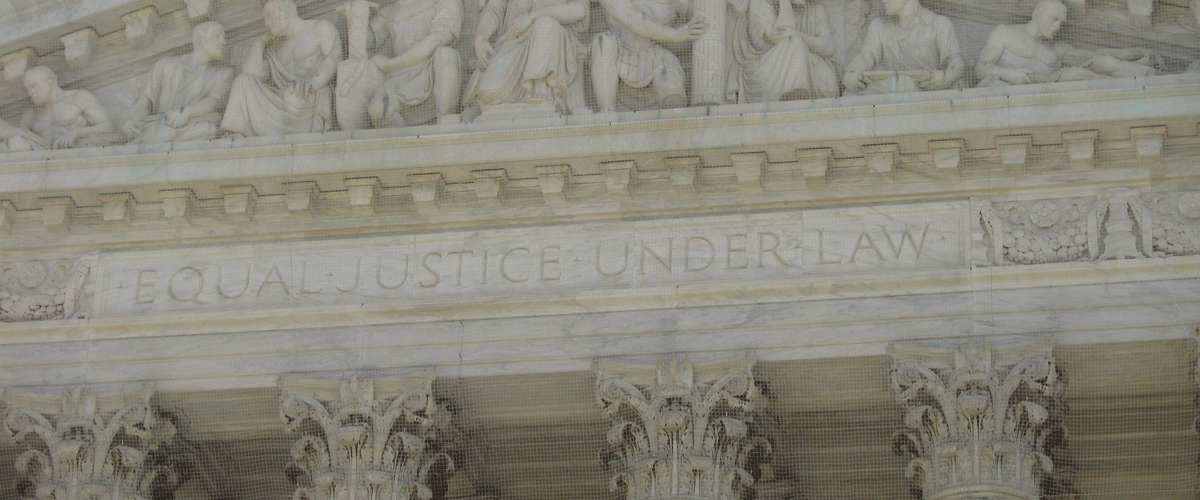Collaboration Incarceration Trends Presumption of Innocence November 11, 2015
The Decision Points blog series explores the seven key decision points during the typical criminal case where choices can be made to reduce jail populations.
“In our society, liberty is the norm, and detention prior to trial or without trial is the carefully limited exception.” These words, penned by Chief Justice Rehnquist in the majority opinion of United States v. Salerno, should be the principle that guides each and every determination of bail and condition of pretrial release. But for far too long, in jails and courtrooms across the nation, our criminal system has failed to adhere to this Constitutional principle.
Four of the first ten amendments to the Constitution establish protections against the power of the criminal justice system in order to ensure each person is treated fairly, but the reality of today’s system is that it often does not adhere to the highest law of the land. And with nearly 12 million jail admissions and $22.2 billion in local corrections spending annually, we have a system that is as ineffective as it is unconstitutional and unjust. The 6th and 8th amendments are important starting points to address the crisis in our local jails, where America’s incarceration problem begins.
The 6th amendment gives each criminal defendant the right to an attorney, including at the initial court hearing when the judge sets the bail amount, but that right is often not reflected in practice. While you may have the right to an attorney, quite often, one will not be provided to you.
The right to counsel is an important check on a system that has overused and misappropriated jail to the detriment of our entire society. Defenders are the only stakeholders in the criminal system whose ethical and legal obligation is to argue for release and alternatives to jail for the client. Providing meaningful defense representation at the initial appearance before a judge, when bail is almost universally addressed, can have a profound impact on the rest of the criminal case trajectory and potential for lasting systemic change.
The 2001 landmark study of the Baltimore City Lawyers at Bail Project demonstrated the tremendous impact of counsel at initial bail hearing by showing that, when compared with similarly situated clients without representation, clients with defense counsel at bail were:
- Two and a half times more likely to be released on their own recognizance;
- Four times more likely to have bail amount reduced, with the average bail reduction six times greater than reduction for those without counsel; and
- Twice as likely to be released on the same day of arrest.
The 8th amendment prohibits the setting of excessive bail, defined as an amount greater than that necessary to assure a person’s return to court. However, bail in most jurisdictions is set without considering the person’s financial means and therefore can be excessive to the defendant. Representation at initial hearing before a judge is required by the 6th amendment. But failing to provide counsel at the time of bail hearing to help to ensure that bail is not excessive also violates the constitutional obligation set by the 8th amendment. Indeed, some may argue that money bail in any amount is excessive, because research and practice have shown that money bail is no more effective to assure return to court than unsecured bonds, which do not have to be paid unless the defendant fails to appear.
As jurisdictions around the nation reevaluate how their local justice systems operate, including the twenty participating in the MacArthur Foundation’s Safety and Justice Challenge, they should consider the impact of providing meaningful defense representation at the initial appearance before a judge. The practice of implementing changes to ensure that competent counsel is provided to every defendant may be practically difficult, requiring legislative and court rule change, funding realignment, and political will. But the solutions themselves are clear and have been embedded in the principles of this nation since its founding. For a nation conceived in liberty should most fiercely protect the freedom of the unconvicted, presumed innocent under law. To fix the system and deliver justice: follow the Constitution.
This post originally appeared on Medium.com.


